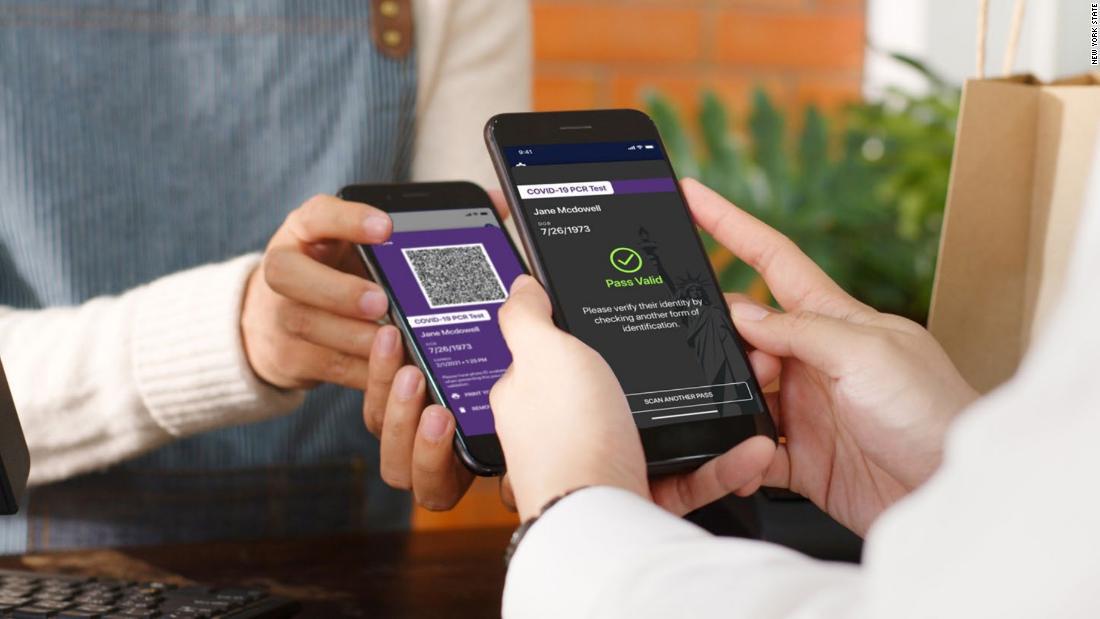
(CNN Español) – Immunity or vaccination passports have been mentioned as an aid that would help return to normal.
For example, its use could reactivate tourism. However, some say it could be a discriminatory measure as there are countries that do not have fair access to vaccines.
Will they be implemented? Dr. Elmer Huerta looks at it in this episode.
You can listen to this episode on Spotify or your favorite podcast platform or read the transcript below.
Hi, I am Dr. Elmer Huerta and this is your daily dose of information about the new coronavirus. Information that we hope will be helpful in caring for your health and that of your family.
Today we will see the rationale behind an immunity passport and why a World Health Organization committee recently decided that this is not a fair measure.
Vaccines and Immunity Passport
Vaccines against covid-19 are a reality and – at the time of writing this issue – more than 919,600,500 doses of the vaccine have been administered and more than 207,978,800 people have already been fully vaccinated, a number representing 2.73% of represents the world’s population, according to figures from Johns Hopkins University.
This is certainly good news, given that vaccines were developed in less than a year and many people are already benefiting from them.
Faced with this reality, and in an effort to promote international trade and tourism, some countries have presented the idea that it would be helpful for those who have already been fully vaccinated to have some sort of document documenting this condition with them testifies.
What is a vaccination passport?
In other words, that document – on paper or electronically – dubbed as a health or vaccination passport, would specify:
- What type of vaccine the person received,
- The batch of those vaccines and the date they were given,
- And it can be used to access certain places that need it, such as:
- Restaurants,
- Public shows or other places that request it
- Or it would serve to travel to the countries that need it.
With that immunization passport, some think, it would be allowed to return to some of the life routines followed before the pandemic, as business and pleasure travel are restarted as soon as possible.
However, there are some issues that must be resolved before those health passports can be implemented. Some are of a biological nature and others of an ethical and legal nature.
The implementation of this passport from an ethical level
From a biological point of view, it has been found that some vaccines may not be as effective against the new variants of SARS-CoV-2.
This fact is so important that the U.S. Food and Drug Administration has published guidelines for vaccine manufacturers to adapt their products to the new variants.
It would then be of little use for a person to have a vaccination passport and to be able to carry a variant at their destination or be susceptible to infection or to carry the virus to the country of origin.
From a legal point of view
From a legal point of view, it has been argued, among other things, that it is not compulsory vaccination and it would not be fair to request a vaccination document if the person decides that he does not want to be vaccinated.
According to some specialists, this would be a discriminatory act. Not everyone thinks the same, of course.
On the other hand, with the development of immunization programs against covid-19, a huge disparity in vaccine acquisition and distribution has come to light, calculated that the richest countries in the world have produced the most vaccines to date.
The problem of unequal access to vaccines
That, according to the WHO, is the main point in the statement at the seventh meeting of the Emergency Situations Committee of the International Health Regulations on the pandemic that agreed to recommend to Member States … and we quote: proof of vaccination as a precondition for to begin with, given the limited (though growing) evidence on the performance of vaccines in reducing transmission and the persistent inequality in the global distribution of vaccines ”.
Later they add the following …
The commission “strongly encourages Member States to recognize the potential of evidence of vaccination requirements, increase inequalities and promote differential freedom of movement.”
While some states in the United States are in favor of those immunity passports, New York has an experimental program called IBM’s Excelsior to access certain places if you’ve been vaccinated or if you’ve recently had a negative test for Covid-19. Other states, such as Florida and Texas vehemently oppose it as an outrage over individual freedom.
It is not yet known what will happen to this idea of immune passports. It is possible that it will remain an initiative of a few private companies for the time being.
Do you have questions about the corona virus?
Send me your questions on Twitter, we’ll try to answer them in our next installments. You can find me at @DrHuerta.
If you think this podcast is useful, help others find it by rating it in your favorite podcast app. We’ll be back tomorrow, so subscribe to get the latest episode on your account.
And for the most current information, you can always visit CNNEspanol.com. Thanks for your attention.
If you have any questions, you can send it to doctor Elmer Huerta via Twitter. You can also visit CNNE.com/coronaviruspodcast for all episodes of our “Coronavirus: Reality vs. Reality” podcast. fiction”.